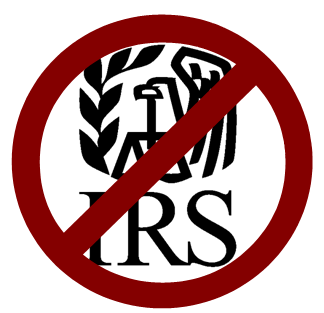A new bill, the so-called “Tax Simplification Act,” by Sen. Elizabeth Warren (D-Mass.) would allow the IRS to automatically do taxes on behalf of taxpayers. Does she take the American people for fools?
For years, we’ve heard warnings that the tax advice the IRS provided to callers was unreliable, and time after time those warnings have been validated. In the 1960s, a Chicago newspaper called the IRS with questions and received incorrect information 50 percent of the time. In 1974, IRS internal auditors called IRS telephone assistors and asked them 19 frequently-asked questions. The auditors found that 20 percent of their tax questions were answered incorrectly.
A 1987 report from the General Accounting Office (now known as the Government Accountability Office) showed that 22 percent of questions asked by callers were answered incorrectly. A further 15 percent of questions were answered correctly but incompletely. A 1988 IRS audit found that about 25 percent of callers were given incorrect information. A GAO report for that year showed that 39 percent of callers were given wrong answers.
In 1989, the IRS admitted that the agency was giving faulty advice to nearly 31 percent of callers. Once again, the GAO reported a slightly higher error rate for that year; the GAO found that IRS telephone assistors answered over 37 percent of questions incorrectly that year. For 1998, the IRS claimed that callers’ tax law questions were answered accurately 85 percent of the time.
The IRS claimed that its telephone assistors accurately answered 88 percent of questions about tax law in 2007. But just this year, media outlets reported that tax lawyers expect that 30 percent of IRS answers to callers are wrong.
The IRS’s performance with answering questions in person has been, at least at times, even worse. In 2001, the Treasury Department found that the IRS gave its investigators inaccurate or insufficient information 73 percent of the time at taxpayer assistance centers. As bad as that error rate is, it had been 81 percent the previous year.
A 2003 audit by the Treasury Department found that 28 percent of the answers given in person at IRS taxpayer assistance centers were incorrect. The audit also found that IRS employees told questioners to find their own answers in IRS publications 12 percent of the time; and 12 percent of questions were answered correctly, but incompletely.
For 2012, the IRS’s accuracy rate for tax law questions at taxpayer assistance centers was only 85 percent according to the Government Accountability Office.
With her legislation, Sen. Warren is asking you to trust an agency that answers tax law questions wrong 15 percent of the time to properly do your taxes for you.
Not only are the IRS’s verbal answers to questioners unreliable; the IRS’s writings, as well as its tax preparation skills, are unreliable too. A 1987 GAO report found a 31 percent error rate in taxpayer correspondence cases. (Correspondence cases are those in which the IRS sends letters to taxpayers seeking further information or notifying them of a problem.) That same year, it was reported that tax returns prepared by the IRS had essentially the same rate of errors as tax returns prepared by taxpayers. The error rate for taxpayer-prepared returns was 5.9 percent; the error rate for IRS-prepared returns was 5.7 percent.
The IRS even admits that its publications (which summarize tax law), private letter rulings (which address specific taxpayers and their specific circumstances), and revenue rulings (which address how tax law would be applied to a certain subset of taxpayers) may not be accurate. In other words, if the IRS asserts that a taxpayer owes additional taxes, the taxpayer cannot refute the IRS’s claim based solely on an IRS publication, a private letter ruling issued to another taxpayer, or a revenue ruling.
The IRS’s online resources are similarly unreliable. In 2014, the IRS promoted some interactive tools designed to help taxpayers on its website. The GAO found that 25 of the 28 tools had not been updated for that tax year. The GAO also reviewed videos on the IRS’s YouTube channel covering 18 subjects. Three of those videos provided inaccurate information.
Given the IRS’s decades-long struggle to provide accurate information to taxpayers, Congress should think twice before adding any further complexity to the tax laws or assigning any new programs to the IRS. Sen. Warren’s legislation is simply asking too much from an agency that has not earned the trust of the American people.
Richard McCarty is the Director of Research of Americans for Limited Government Foundation.







